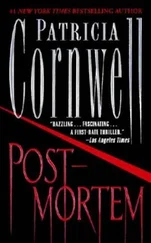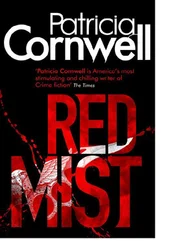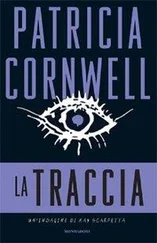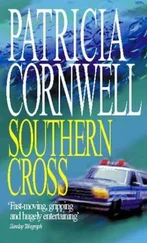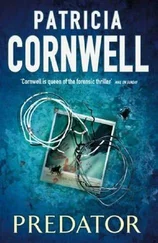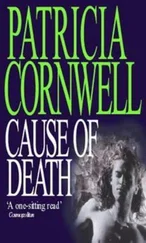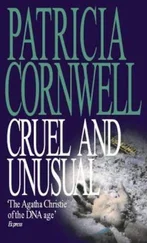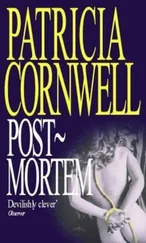Patricia Cornwell - Point of Origin
Здесь есть возможность читать онлайн «Patricia Cornwell - Point of Origin» весь текст электронной книги совершенно бесплатно (целиком полную версию без сокращений). В некоторых случаях можно слушать аудио, скачать через торрент в формате fb2 и присутствует краткое содержание. Жанр: Фантастика и фэнтези, на английском языке. Описание произведения, (предисловие) а так же отзывы посетителей доступны на портале библиотеки ЛибКат.
- Название:Point of Origin
- Автор:
- Жанр:
- Год:неизвестен
- ISBN:нет данных
- Рейтинг книги:4 / 5. Голосов: 1
-
Избранное:Добавить в избранное
- Отзывы:
-
Ваша оценка:
- 80
- 1
- 2
- 3
- 4
- 5
Point of Origin: краткое содержание, описание и аннотация
Предлагаем к чтению аннотацию, описание, краткое содержание или предисловие (зависит от того, что написал сам автор книги «Point of Origin»). Если вы не нашли необходимую информацию о книге — напишите в комментариях, мы постараемся отыскать её.
Point of Origin — читать онлайн бесплатно полную книгу (весь текст) целиком
Ниже представлен текст книги, разбитый по страницам. Система сохранения места последней прочитанной страницы, позволяет с удобством читать онлайн бесплатно книгу «Point of Origin», без необходимости каждый раз заново искать на чём Вы остановились. Поставьте закладку, и сможете в любой момент перейти на страницу, на которой закончили чтение.
Интервал:
Закладка:
'What's this?' I said to Lucy as I buckled my four-point harness.
'We've got a long flight.'
She cracked the throttle several times to make certain there was no binding and it was closed.
'I realize that,' I said.
'Cross country's a good time to try your hand at it.'
She lifted the collective and made big X's with the cyclic.
'Whose hand at what?' I said as my alarm grew.
'Your hand at flying when all you got to do is hold your altitude and speed and keep her level.'
'No way.'
She pressed the starter and the engine began to whirr.
'Yes, way.'
The blades began to turn as the windy roar got louder.
'If you're going to fly with me,' my niece, the pilot and certificated flight instructor, said above the noise, 'then I'd like to know you could help out if there was a problem, okay?'
I said nothing more as she rolled the throttle and raised the rpms. She flipped switches and tested caution lights, then turned on the radio and we put our headsets on. Lucy lifted us off the platform as if gravity had quit. She turned us into the wind and moved forward with gathering speed until the helicopter seemed to soar on its own. We climbed above trees, the sun high in the east. When we were clear of the tower and the city, Lucy began lesson one.
I already knew what most of the controls were and what they were for, but I had an extremely limited understanding of how they worked together. I did not know, for example, that when you raise the collective and increase power, the helicopter will yaw to the right, meaning you have to depress your left antitorque pedal to counter the torque of the main rotor and keep the aircraft in trim, and as your altitude climbs, due to the pulling up on the collective, your speed decreases, meaning you have to push the cyclic forward. And so on. It was like playing the drums, as best I knew, only in this instance I had to watch for dim-witted birds, towers, antennae, and other aircraft.
Lucy was very patient, and the time moved fast as we forged ahead at one hundred and ten knots. By the time we were north of Washington, I actually could keep the helicopter relatively steady while adjusting the directional gyro at the same time to keep it consistent with the compass. Our heading was 050 degrees, and although I could juggle not one more thing, such as the Global Positioning System, or GPS, Lucy said I was doing a fine job keeping us on course.
'We got a small plane at three o'clock,' she said through her mike. 'See it?'
'Yes.'
'Then you say, tally-ho. And it's above horizon. You can tell that, right?'
'Tally-ho.'
Lucy laughed. 'No. Tally-ho does not mean ten-four. And if something's above horizon, that means it's also above us. That's important, because if both aircraft are at horizon and the one we're looking at also doesn't seem to be moving, then that means it's at our altitude and either heading away from us or straight for us. Kind of smart to pay attention and figure out which one, right?'
Her instruction went on until the New York skyline was in view, then I was to have nothing more to do with the controls. Lucy flew us low past the Statue of Liberty and Ellis Island, where my Italian ancestors had gathered long ago to begin with nothing in a new world of opportunity. The city gathered around us and the buildings in the financial district were huge as we flew at five hundred feet, the shadow of our helicopter moving below us along the water. It was a hot, clear day, and tour helicopters were making their rounds while others carried executives who had everything but time.
Lucy was busy with the radio, and approach control did not seem to want to acknowledge us because air traffic was so congested, and controllers were not very interested in aircraft flying at seven hundred feet. At this altitude in this city, the rules were see and avoid, and that was about it. We followed the East River over the Brooklyn, Manhattan, and Williamsburg bridges, moving at ninety knots over crawling garbage barges, fuel tankers, and circling white tour boats. As we passed by the crumbled buildings and old hospitals of Roosevelt Island, Lucy let La Guardia know what we were doing. By now Ward's Island was straight ahead. It was appropriate that the part of the river at the southwestern tip was called Hell Gate.
What I knew about Ward's Island came from my enduring interest in medical history, and as was true of many of New York's islands in earlier times, it was a place of exile for prisoners, the diseased, and mentally ill. Ward's Island's past was particularly unhappy, as I recalled, for in the mid-eighteen hundreds, it had been a place of no heat or running water, where people with typhus were quarantined and Russian Jewish refugees were warehoused. At the turn of the century, the city's lunatic asylum had been moved to the island. Certainly conditions were better here now, although the population was far more maniacal. Patients had air conditioning, lawyers, and hobbies. They had access to dental and medical care, psychotherapy, support groups, and organized sports.
We entered the Class B airspace above Ward's Island in a deceptively civilized way, flying low over green parks shaded with trees as the ugly tan brick high-rises of the Manhattan Psychiatric and Children's Psychiatric Centers and Kirby loomed straight ahead. The Triborough Bridge Parkway ran through the middle of the island, where incongruous to all was a small circus going on, with bright striped tents, ponies, and performers on unicycles. The crowd was small, and I could see kids eating cotton candy, and I wondered why they weren't in school. A little farther north was a sewage disposal plant and the New York City fire department training academy, where a long ladder truck was practicing turns in a parking lot.
The forensic psychiatric center was twelve stories of steel mesh covered windows, opaque glass, and air conditioning units. Sloppy coils of razor wire bent in over walkways and recreation areas, to prevent an escape that Carrie apparently had found so easy. The river here was about a mile wide, rough and foreboding, the current swift, and I did not think it likely that anyone could swim across it. But there was a footbridge, as I had been told. It was painted the teal of oxidized copper and was maybe a mile south of Kirby. I told Lucy to fly over it, and from the air I saw people crossing it from both directions, moving in and out of the East River Housing of Harlem.
'I don't see how she could have gotten across that in broad daylight,' I transmitted to Lucy. 'Not without being seen by someone. But even if she could and did, what next? The police were going to be all over the place, especially on the other side of the bridge. And how did she get to Lehigh County?'
Lucy was doing slow circles at five hundred feet, the blades flapping loudly. There were remnants of a ferry that at one time must have allowed passage from East River Drive at 106th Street, and the ruins of a pier, which was now a pile of rotting, creosote-treated wood jutting out into unfriendly waters from a small open field on Kirby's western side. The field looked suitable for landing, providing we stayed closer to the river than to the screened-in walkways and benches of the hospital.
As Lucy began a high reconnaissance, I looked down at people on the ground. All were dressed in civilian clothes, some stretching or lying in the grass, others on benches or moving along walkways between rusting barrels of trash. Even from five hundred feet, I recognized the slovenly, ill-fitting dress and odd gaits of those broken beyond repair. They stared up, transfixed, as we scoured the area for problems, such as power lines, guy wires, and soft, uneven ground. A low reconnaissance confirmed our landing was safe, and by now, more people had emerged from buildings or were looking out windows and standing in doorways to see what was going on.
Читать дальшеИнтервал:
Закладка:
Похожие книги на «Point of Origin»
Представляем Вашему вниманию похожие книги на «Point of Origin» списком для выбора. Мы отобрали схожую по названию и смыслу литературу в надежде предоставить читателям больше вариантов отыскать новые, интересные, ещё непрочитанные произведения.
Обсуждение, отзывы о книге «Point of Origin» и просто собственные мнения читателей. Оставьте ваши комментарии, напишите, что Вы думаете о произведении, его смысле или главных героях. Укажите что конкретно понравилось, а что нет, и почему Вы так считаете.


